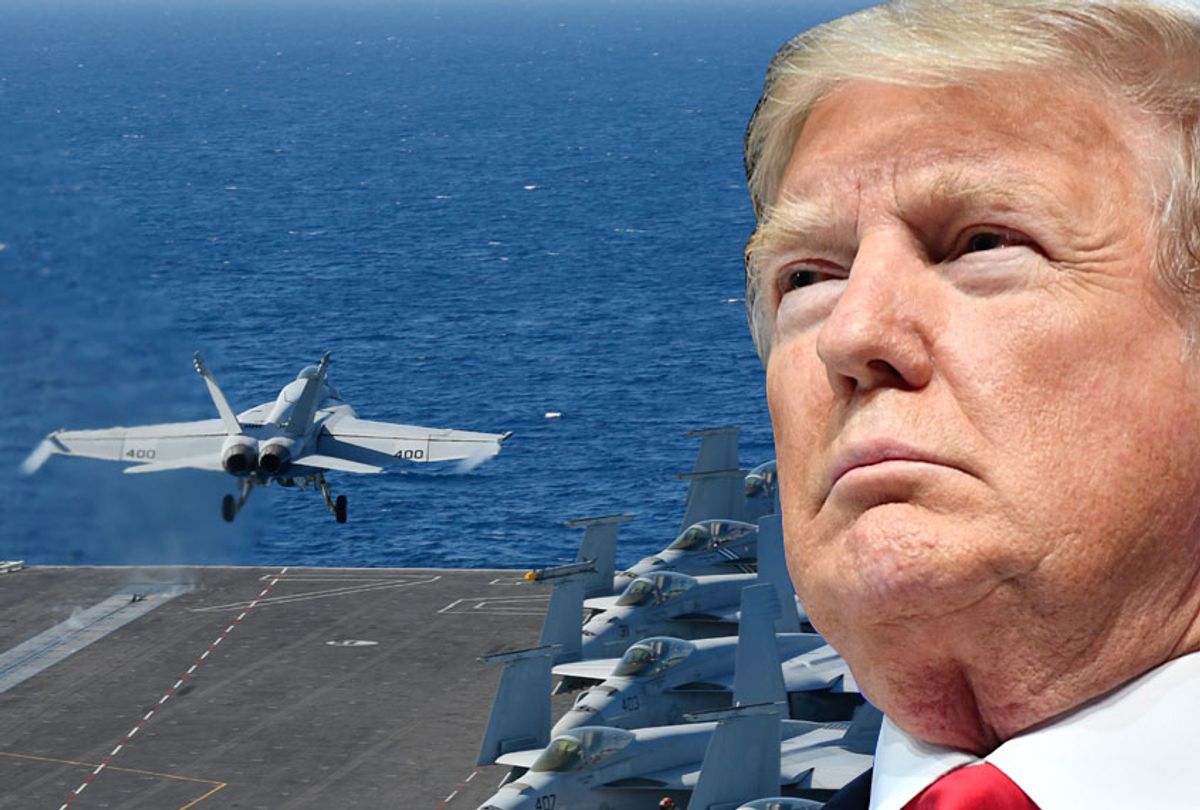The Trump administration has authorized the deployment of 1,000 new troops to the Middle East amid escalating tensions with Iran.
"In response to a request from the U.S. Central Command for additional forces, and with the advice of the chairman of the Joint Chiefs of Staff and in consultation with the White House, I have authorized approximately 1,000 additional troops for defensive purposes to address air, naval and ground-based threats in the Middle East," acting Defense Secretary Patrick Shanahan said in a statement to CNN.
He added, "The recent Iranian attacks validate the reliable, credible intelligence we have received on hostile behavior by Iranian forces and their proxy groups that threaten United States personnel and interests across the region."
Shanahan emphasized that the "United States does not seek conflict with Iran."
Instead, the acting defense secretary argued that "the action today is being taken to ensure the safety and welfare of our military personnel working throughout the region and to protect our national interests. We will continue to monitor the situation diligently and make adjustments to force levels, as necessary given intelligence reporting and credible threats."
According to one American official, the deployment will include missile defense for protection, as well as intelligence, reconnaissance and surveillance aircraft. The move came after the Pentagon released detailed photographs, which they claim revealed Iranian boats taking a mine away from one of two tankers attacked in the Gulf of Oman earlier this month. Iran has denied any involvement in the tanker attacks.
On Monday, Secretary of State Mike Pompeo said he would travel to a command center that oversees Middle East military operations; on the previous day, he had said that a range of options was on the table, including military action.
"We don't want Iran to get a nuclear weapon," Pompeo said during an appearance on "Face the Nation" on CBS. "President Trump has said very clearly, he doesn't want to go to war."
Trump's approach toward Iran has thus far been markedly different from that of his predecessor, former President Barack Obama, who helped negotiate a nuclear deal with the country in the hope of neutralizing it as a potential threat to the U.S. Last month, Pompeo spoke to "Fox & Friends" about how the Trump administration views its policies toward Iran as a fundamental departure from those pursued by Obama.
"The previous administration took a different path. They underwrote that government, giving them hundreds of billions of dollars and the ability to put the terror team in place that we're seeing today — the very terror threat that we're facing," Pompeo said at the time. "President Trump's taken a very different course of action. We are determined to stop not only their nuclear program — and from them ever getting a nuclear weapon — but to prevent them from building up their missile program and conducting terror campaigns."
Earlier in the interview, Pompeo said, "Without getting into specifics, you can be sure that President Trump will ensure that we have all the resources necessary to respond in the event that the Islamic Republic of Iran should decide to attack Americans; or American interests; or some of our great soldiers, sailors, airmen or Marines who are serving in that region; or the diplomats serving in Iraq or elsewhere."



Shares